About Family and Childrens Services Osage Hills
If you or someone you love is struggling with addiction, you’re not alone. Family and Childrens Services Osage Hills is here to help. We offer a variety of programs and services designed to meet the unique needs of each individual. Whether you’re looking for inpatient or outpatient care, we can help. We offer a range of therapies, including cognitive behavioral therapy, dialectical behavior therapy, family therapy, group therapy, and individual therapy. We also offer aftercare support to help you maintain your sobriety after you leave our care. Contact us today to learn more about how we can help you or your loved one recover from addiction.
Addiction Treatment Programs
Dual Diagnosis
If you have both a mental health condition and substance use disorder, you need dual diagnosis treatment in Oklahoma to address both issues together. A dual diagnosis program uses evidence-based approaches to help you overcome both your mental health concerns and substance use. This may include mental health medication, counseling, and more.
Young Adult Rehab
If you’re a young adult struggling with substance use, consider a young adult rehab program in Oklahoma. A young adult program gives you the skills you need to overcome addiction and address the unique challenges of transitioning from the teen years to adulthood.
Adult Program
An adult program in Oklahoma can help clients make healthier life choices and avoid common mistakes. An adult program gives you the skills you need to overcome addiction and address the unique challenges of managing your work, relating to your family, raising children, and balancing a variety of other responsibilities.
Men's Rehab
When people join a men’s rehab in Oklahoma, they are able to tackle gender-specific issues while receiving treatment. A men’s program gives you the skills you need to overcome addiction and address challenges such as family relationships, fatherhood, emotional management, and more.
Women's Rehab
A women’s rehab in Oklahoma can provide every level of care while addressing the unique needs of women. A women’s program gives you the skills you need to overcome addiction and address your unique challenges, such as motherhood, building a career, having healthy relationships, and more.
Insurance Coverage
Medicaid
If you’re looking for ways to pay for rehab in Oklahoma, consider using Medicaid if you qualify. You can find treatment centers that accept Medicaid offering multiple levels of care, including detox, inpatient, and outpatient. You may pay little or nothing out-of-pocket.
Private insurance
When looking for ways to pay for rehab in Oklahoma, consider private insurance. Plans vary, so be sure to contact your insurer for details. You may have out-of-pocket costs such as deductibles and copays.
Self-pay options
Self-pay is one of many options for paying for substance use treatment in Oklahoma. You can use a medical loan, electronically send money, or write a check. This gives you maximum flexibility in picking the treatment center you prefer.
Sliding scale payment assistance
One option for paying for rehab in Oklahoma is looking for treatment centers that have a sliding scale payment plan. You may need to provide financial documentation for your income and family size, but the lower fees will make it much easier to get the care you need.
Levels of Care
- 1
Outpatient Rehab
Outpatient treatment in Oklahoma can provide a great way to practice and reinforce new habits formed in residential rehab programs. Outpatient treatment sessions generally last 60 to 90 minutes and may include discussing a specific issue, sharing wins and challenges, education about specific topics, or developing life skills.
- 2
Aftercare Support
It’s easy to wonder what’s next after treatment, but fortunately, aftercare in Oklahoma can provide ongoing support. Aftercare may include connections to 12-step and other support groups, housing and employment resources, community recovery centers, and more.
Therapies
Cognitive Behavior Therapy
The goal of cognitive behavioral therapy (CBT) in Oklahoma is to address negative thinking patterns to create positive change. During treatment, you’ll examine common thought distortions, identify learned negative behaviors, and learn the skills necessary to consciously choose a different reaction to each situation.
Dialectical Behavior Therapy
The goal of dialectical behavioral therapy (DBT) in Oklahoma is to help you recognize your strengths and embrace your ability to create positive change. During treatment, you’ll unlearn unwanted thoughts and behaviors, practice and reinforce positive coping strategies, and empower yourself to create the life you want.
Family Therapy
Family therapy in Oklahoma can address conflicts in your family so your loved ones can help provide encouragement, support, and accountability as you work through substance use treatment. Family therapy is only one element of rehab treatment, along with activities, peer support, individual and group counseling, relapse prevention, and more. Together, all these methods support you in establishing long-term recovery.
Group Therapy
Group therapy in Oklahoma can provide encouragement, support, and accountability as you work through substance use treatment. Group therapy sessions generally last 60 to 90 minutes and may include discussing a specific issue, sharing wins and challenges, education about specific topics, or developing life skills.
Individual Therapy
During individual therapy in Oklahoma, clients have a confidential environment to work through their struggles with a professional. Individual therapy is a normal part of evidence-based treatment programs and may be a part of inpatient treatment, outpatient care, or both. Topics include processing past events that may have contributed to substance use, learning new life skills, and relapse prevention strategies.
Trauma Therapy
Talking about what you’ve been through and how it impacted you is an important way to heal, and trauma-informed therapy in Oklahoma gives you that opportunity. Trauma-informed therapy may be part of both inpatient and outpatient substance use treatment and may include peer support, mental health medications, mindfulness, and developing new coping strategies.
Accreditations
Location
Contact Family and Childrens Services Osage Hills
Top Drug Rehab Centers in Oklahoma
-
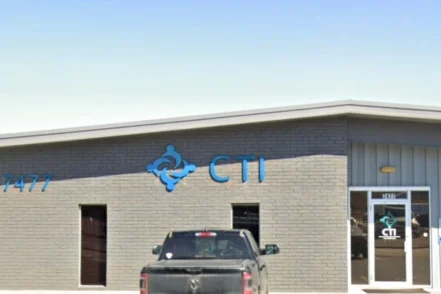 Oklahoma
OklahomaCenter for Therapeutic Interventions
7477 East 46Th Place Tulsa, Oklahoma 74145
-
 Oklahoma
OklahomaGRAND Addiction Recovery Center – Tulsa Campus
6333 East Skelly Drive Tulsa, Oklahoma 74135
-
 Oklahoma
OklahomaAdult and Teen Challenge Freedom House
237 West North Avenue Checotah, Oklahoma 74426
-
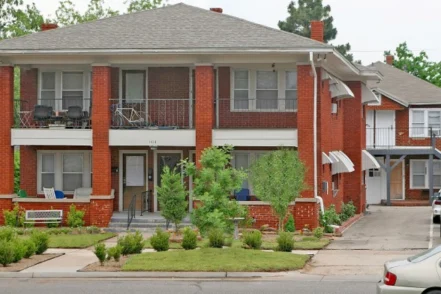 Oklahoma
OklahomaInto Action Sober Living
1414 Nw 25Th Street Oklahoma City, Oklahoma 73106
-
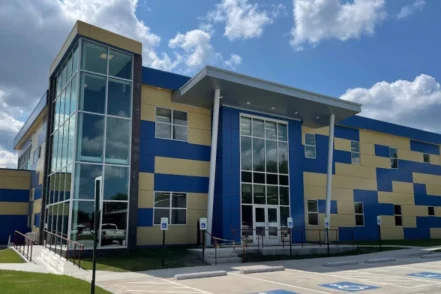 Oklahoma
OklahomaGreen Country Behavioral Health Services Muskogee
619 North Main Street Muskogee, Oklahoma 74401
-
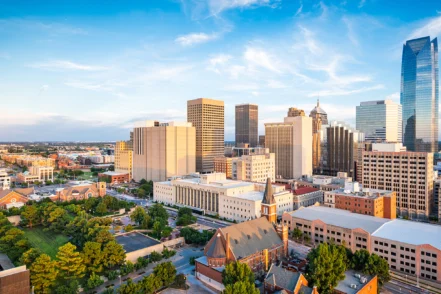 Oklahoma
OklahomaOKC Metro Alliance FIRSTEP Mens Recovery Program
11601 West Stanley Draper Drive Oklahoma City, Oklahoma 73165
-
 Oklahoma
OklahomaClay Crossing Maud
32018 Highway 59 Maud, Oklahoma 74854
-
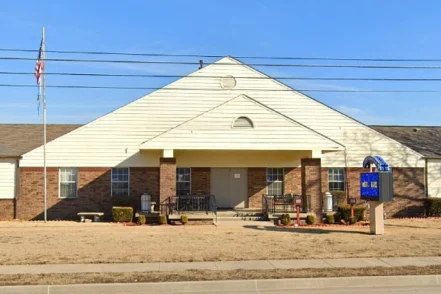 Oklahoma
OklahomaHOW Foundation
5649 South Garnett Road Tulsa, Oklahoma 74146
-
 Oklahoma
OklahomaAdult and Teen Challenge of Oklahoma
909 South Meridian Avenue Oklahoma City, Oklahoma 73108
-
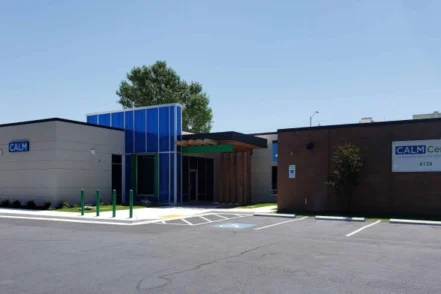 Oklahoma
OklahomaCalm Center
6126 East 32Nd Place Tulsa, Oklahoma 74135
